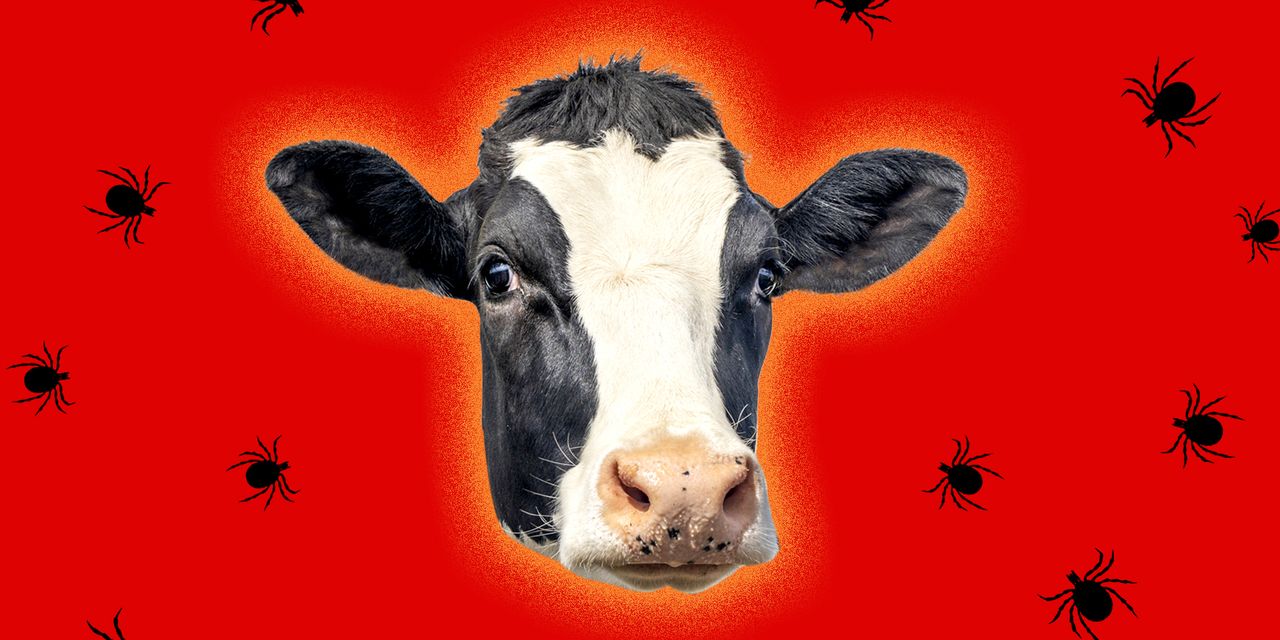Paranoid about ticks this summer? Add red meat to that list, too.
The CDC reported that there were more than 110,000 suspected cases of alpha-gal syndrome, or AGS, between 2010 and 2022, but the actual number of cases may be four times that amount. This allergic reaction can result from eating meat that contains alpha-gal.
Alpha-gal is a sugar found in pork, beef, rabbit, lamb and venison, among other meats, and products made from mammals, including gelatin, cow’s milk, milk products, as well as some pharmaceuticals, the CDC said.
“However, because the diagnosis of alpha-gal syndrome requires a positive diagnostic test and a clinical exam, and some individuals with alpha-gal syndrome may not get tested, it is estimated that as many as 450,000 people might have been affected by AGS in the United States,” the CDC said.
“‘Alpha-gal syndrome is an important emerging public-health problem, with potentially severe health impacts that can last a lifetime for some patients.’”
The tick population and Lyme disease cases have risen in recent years due, in part, to global warming — a warmer climate makes it a more hospitable environment for ticks — “and the increasing encroachment of human development adjacent to forested animal habitats,” according to the Association of American Medical Colleges.
Many healthcare providers in the U.S. are not familiar with this “potentially life-threatening allergic condition,” the CDC said. Of those who are aware of AGS, the government agency said research suggests that knowledge about diagnosis and management is still low.
Growing evidence shows that AGS is primarily associated with the bite of a lone star tick. People may develop AGS after getting bitten by a tick, although more research is needed on the role ticks that play, and why certain people develop AGS, the CDC said. Many cases were concentrated in the South, Midwest and mid-Atlantic regions, it added.
“Alpha-gal syndrome is an important emerging public-health problem, with potentially severe health impacts that can last a lifetime for some patients,” Dr. Ann Carpenter, epidemiologist and lead author of one of the papers released Thursday, said in a statement.
How do you know if you have AGS?
People who suffer from AGS may experience a range of symptoms, including hives and itchy rashes, heartburn, severe stomach pain, a drop in blood pressure, and swelling of the lips, throat, tongue or eyelids.
The symptoms usually appear 2 to 6 hours after eating food containing alpha-gal, the sugar commonly found in meat from mammals, such as beef, pork and lamb. It can also be found in animal products such as cow’s milk and gelatin.
“The burden of alpha-gal syndrome in the United States could be substantial given the large percentage of cases suspected to be going undiagnosed due to non-specific and inconsistent symptoms, challenges seeking healthcare, and lack of clinician awareness,” Dr. Johanna Salzer, senior author on both papers on AGS released this week, said in a statement.
“It’s important that people who think they may suffer from AGS see their healthcare provider or an allergist, provide a detailed history of symptoms, get a physical examination, and a blood test that looks for specific antibodies (proteins made by your immune system) to alpha-gal,” she added.
One Medical primary care provider Natasha Bhuyan from Phoenix, Arizona told MarketWatch over email that people shouldn’t hesitate to reach out to their health care provider if they spot any new symptoms. Even if the symptoms seem minor or vague, they could still be part of a larger issue.”
“Because this is a condition that is not widely known in the medical community, it’s also important to be an advocate for yourself and let your PCP [primary care provider] know if you suspect AGS,” Bhuyan said.
And while there is currently no cure for AGS, early detection can help the patient and their primary care provider to develop a management plan, Bhuyan added.
Once diagnosed, people should also seek opinions from their healthcare providers to understand which food and products they should avoid.
Depending on the severity of symptoms, healthcare providers may also suggest cutting down on milk products or other ingredients that might contain alpha-gal. People with severe AGS might also react to certain vaccines.
Lyme disease remains a constant risk
Avoiding tick bites can also prevent developing AGS, and other tick-borne diseases such as Lyme disease, a bacterial infection transmitted by tick bites, and commonly transmitted during summer months.
People who suffer from Lyme disease can start to see red rashes several days after infection, and may also develop flu-like symptoms such as a headache and stiff neck days or weeks after the bite, according to John Hopkins Medicine.
“There are over 300,000 estimated new cases of Lyme disease in the United States each year,” the hospital said. “The symptoms of Lyme disease depend on how long the infection has been present in the body. The first sign of Lyme disease is often an expanding round or oval red ‘bullseye’ rash.”
“Lyme disease is difficult to diagnose because symptoms are not consistent and may mimic other conditions,” it added. “The primary symptom is a rash, but it may not be present in up to 20% of cases.”
Weeks or even months after the initial bite by an infected tick, the patient could develop fever, fatigue, joint pain, rash, heart problems, neurological symptoms, or “red eye” (inflamed, red or bloodshot eyes).
Last April, Moderna Inc.
MRNA,
said it was working to develop its first bacterial vaccine to protect against Lyme disease. “Older adults appear to have higher odds of unfavorable treatment response as compared with younger patients, and neurologic manifestations are more common at presentation for this older adult population,” the company said in a statement at the time.
Ciara Linnane contributed.
Read the full article here








